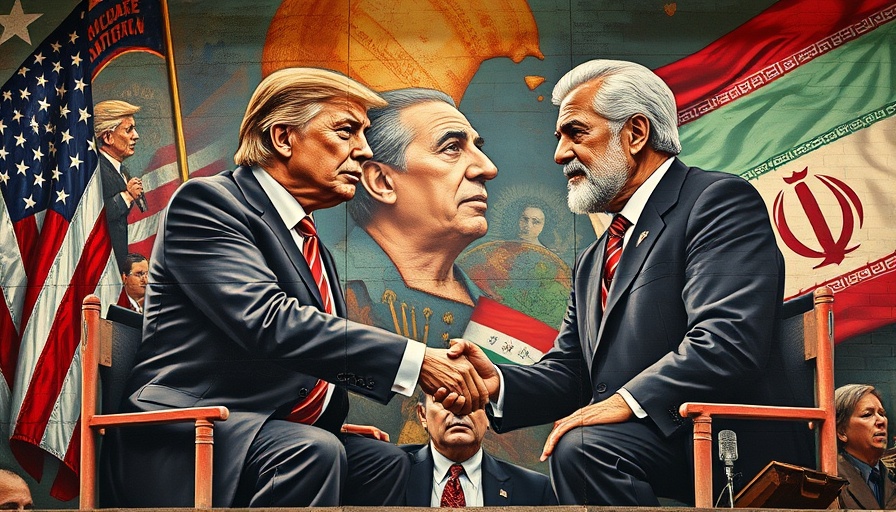
Understanding Trump's Approach to Iran's Nuclear Program
As discussions around Iran's nuclear ambitions resume, it's vital to dissect President Trump's evolving strategy compared to former President Obama's approach. While Trump has expressed impatience with the negotiation pace led by envoy Steve Witkoff, he has simultaneously shown a shocking shift in language about Iran's nuclear capabilities.
Traditionally, Trump's stance has been heavily focused on dismantling Iran’s nuclear capabilities altogether, a sharp contrast to Obama's more diplomatic framework—which aimed at curbing Iran's potential for weaponization while allowing a nuclear program that serves civilian energy needs. This change signals a potential pivot in U.S. foreign policy that could impact international relations in the region.
The Implications of Negotiation Dynamics
Trump's visible frustration with the negotiation timeline highlights a critical trend: the administration's leverage over Tehran could be more substantial than previously assumed. If the talks are merely a façade for Iran's nuclear progress, the stakes are higher than anticipated. Effective negotiation strategies in this context can lead to significant concessions from Iran.
With Iran's leadership previously seen as resilient under pressure, the question arises: will they relent under sustained U.S. leverage, or is this simply a tactic to buy time? The historical context shows that adversaries will often play the long game, waiting for their opponent's position to weaken before making significant concessions.
Keeping Nuclear Weapons Out of Iran’s Hands
Despite shifting rhetoric, the crux of the matter remains: stopping Iran from developing nuclear weapons is critical for regional and global security. Trump's current message—a reluctance to strictly prohibit nuclear technology, opting instead to focus on outright weaponization—might create loopholes for Iran to exploit.
This presents a new set of challenges for U.S. policymakers who must craft a strategy that balances diplomatic engagement with stringent oversight, ensuring any nuclear program does not facilitate further military proliferation.
The Future of U.S.-Iran Relations
Looking ahead, what can we expect from this diplomatic dance? Trump's administration is at a crossroads, and the decisions made in the coming weeks will have long-lasting consequences. If negotiations falter, it may pave the way for harsher sanctions or military options, potentially escalating tensions in the already volatile Middle East.
On the other hand, if the U.S. can leverage its position effectively, it might secure a deal with better terms than what was initially on the table, a prospect favored by many foreign policy experts. But the balance of good versus bad outcomes is precarious.
Public Perception and Political Ramifications
For the affluent taxpayers in Philadelphia, understanding the implications of U.S. policy on Iran isn’t just about politics—it’s personal. Decisions made today will affect global oil prices, security issues that could impact U.S. homeland safety, and international alliances. Thus, being informed will empower residents to engage in discussions that shape the political landscape—ensuring their voices are heard in Washington.
Actionable Insights for Engaged Citizens
As negotiations unfold, Philadelphia residents are encouraged to remain vigilant and proactive. Stay informed by following credible news sources, engaging in community dialogues about U.S. foreign policy, and understanding how international developments can impact local economies and security.
It's not only about understanding the political atmosphere; your voice can contribute to shaping future policies. Getting involved, whether through civic engagement or local dialogues about policy implications, can have a lasting impact.
By focusing on these issues, we not only become well-informed citizens but also advocates for national policies that prioritize both diplomatic engagement and security.
 Add Row
Add Row  Add
Add 




Write A Comment